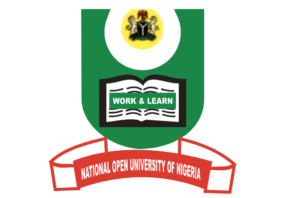Teacher Education at a Distance: What are the Student Teachers Saying?
 The National Open University of Nigeria (NOUN) is one of the increasing Open and Distance learning Institution that has reposition itself for innovative teacher training programme at a distance. This ODL paradigm has widen student’s access and opened up n ew possibilities of learning. But if the emergence of student’s voice has presented itself as a challenge to schools and researchers (Keeffe and Andrew 2015) then the need to become more responsive to these voices as regard their learning. This ongoing res earch work therefore captures the voices and views of some distance learners on their teacher education programme. The study was conducted between January and March 2018 during the student’s physical presence at the Pen on Paper (POP) and E – examinations. A randomly selected sample of 68 students out of the 248 that registered for the various education programmes in a study center took part in the study. A mixed methods approach was adopted which involves learners interviewed and questionnaires administered to establish the extent to which the voices corroborates the written expressions. Key issues captured in the validated instruments included the students views on the use of course materials, library, access to internet, study group and examination procedur e. From the analysis, it was found among others that while 73.5% of the students found the materials useful, got so glued and didn’t see the need for the library (82.4%), only 47.0% had access to the internet because of their location. It is important to n ote also that as useful as the claim for the materials, some students expressed that some of the examination questions were not within the materials. For teacher education at a distance to provide an effective, flexible alternative to the traditional appro ach, there is the need to rethink all learning resources that could empower these teachers especially those living in rural communities. This will facilitate quality professional development and translate them to “members of learning community” // Paper ID 213
The National Open University of Nigeria (NOUN) is one of the increasing Open and Distance learning Institution that has reposition itself for innovative teacher training programme at a distance. This ODL paradigm has widen student’s access and opened up n ew possibilities of learning. But if the emergence of student’s voice has presented itself as a challenge to schools and researchers (Keeffe and Andrew 2015) then the need to become more responsive to these voices as regard their learning. This ongoing res earch work therefore captures the voices and views of some distance learners on their teacher education programme. The study was conducted between January and March 2018 during the student’s physical presence at the Pen on Paper (POP) and E – examinations. A randomly selected sample of 68 students out of the 248 that registered for the various education programmes in a study center took part in the study. A mixed methods approach was adopted which involves learners interviewed and questionnaires administered to establish the extent to which the voices corroborates the written expressions. Key issues captured in the validated instruments included the students views on the use of course materials, library, access to internet, study group and examination procedur e. From the analysis, it was found among others that while 73.5% of the students found the materials useful, got so glued and didn’t see the need for the library (82.4%), only 47.0% had access to the internet because of their location. It is important to n ote also that as useful as the claim for the materials, some students expressed that some of the examination questions were not within the materials. For teacher education at a distance to provide an effective, flexible alternative to the traditional appro ach, there is the need to rethink all learning resources that could empower these teachers especially those living in rural communities. This will facilitate quality professional development and translate them to “members of learning community” // Paper ID 213







